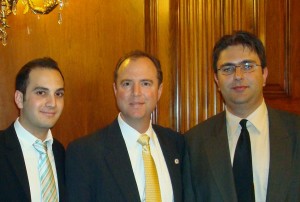

WASHINGTON, D.C. – In a recent interview with the Armenian Council of America (ACA), Rep. Adam Schiff (D-Burbank) discussed the State and Foreign Operations Appropriations Bill for fiscal year 2013 and its impact on foreign assistance to the Republic of Armenia and to Nagorno-Karabakh. The following is a transcript of the interview:
ACA: Congressman, thank you for taking the time to speak with us today. Can you briefly discuss the State and Foreign Operations Appropriations Bill and how it will guarantee foreign aid to Armenia. Will that also include Nagorno-Karabakh?
Congressman Schiff: Sure and the answer is Yes. We were successful in maintaining a strong level of support for Armenia. Most of the foreign aid is being cut this year as a result of our diminished budget resources and foreign aid took a bigger cut than most of the other parts of the U.S. budget. But nonetheless, we were able to maintain the same level of funding for Armenia of about $40 million in the economic support funds. This was a very good victory.
In the case of Nagorno-Karabakh we were even more successful. In the past, we have allocated funding only to see the State Department not use much of the funding that we have provided. This year, we included language requiring the State Department to invest at least $5 million in helping with some of the humanitarian concerns in Artsakh and that was incorporated in the Bill and that more than doubles assistance to Nagorno-Karabakh.
Finally, we followed up on a meeting I had with the President of the Republic of Georgia where I raised the issue of some of the Armenian enclaves in that country and the needs of the Armenian community there. He expressed a willingness to work with us and make sure to use the resources that we’re helping provide to improve the quality of life in those areas. This is now reflected in the State Department and Foreign Operations Appropriations Bill where we have language requiring the Millennium Challenge Corporation and USAID to assess the situation in those communities and develop an aid plan to help those areas. So in each of the three areas we focused on, we were very successful.
ACA: You mentioned that some cuts were made to foreign assistance because of the economy. Has Armenia or Artsakh been affected negatively in any way due to the economy?
CS: Fortunately, thus far, no. We are only through one part of the process. This is what is in the House version of what is in the State Foreign Operations Bill. Many of these items are not in the Senate version and when the two items pass, they will go into a Conference Committee and we’re voting to fight for the House language. So we are not yet at the goal line by any means, but in the House bill, Armenia and Artsakh did better than almost any other region in the sense that they maintained the level of funding in the case of Armenia or increased funding in the case of Artsakh. That’s quite a rarity and goes against the grain of what most other countries faced that didn’t get specific appropriations, or if they did, were much reduced.
ACA: That leads to the next question. Countries like Afghanistan, Egypt, Pakistan and the Palestinian authority had clear conditions which they had to adhere to in order to receive any kind of funding. Will there be any such limitations posed on Armenia and if so, what are they?
CS: There are no specific limitations posed in the language of the Foreign Operations Bill like the other countries mentioned. There are more general limitations applied to all of our foreign assistance, the primary one being that it has to be used for its intended purpose. If these funds are allocated by the State Department, for example, to help build an irrigation system or build a health clinic, then they need to be used for that purpose and they can’t be stiffened off or be misappropriated or misspent. But apart from that very universal requirement, there are no specific obligations attached to these funds.
ACA: It is no secret that Armenia and the Islamic Republic of Iran have had a mutually beneficial relationship for many years in the areas of commerce, trade and energy. How will Armenia’s relationship with Iran affect whether or not the amount of aid they receive?
CS: We are obviously very concerned about Iran. About the fact that it is a State sponsor of terror and that it is proceeding with a nuclear program against the demands of the International community and so it concerns us when any country has a relationship where they are supporting the Iranian economy, particularly in the energy sector and this is something we are going to have to continue to work on with Armenia. Armenia is in a pretty tough situation because it is landlocked and blockaded by Turkey and Azerbaijan, so it has limited resources and access to energy and I think that’s something that the Administration certainly takes into consideration. As opposed to other countries that have a great choice in where they obtain their energy and who they do their business with.
ACA: What would you say to those who are opponents of foreign aid to Armenia and Nagorno- Karabakh?
CS: Foreign assistance is a very small part of our budget. Most people think it represents 10 percent or 15 percent of our budget, but it’s a tiny fraction of that and I think it is very important. It is in the highest ideals of the country that we help those that are less fortunate. It is also in our national security interest that we don’t allow countries to become Stateless, potential havens for terrorism. So I think that the American people have always been supportive. It is much more difficult in strife economic times where there are a lot of pressing needs at home, but this is why it is a very small portion of our budget but I think an important one.
ACA: Being a long-time friend of the Armenian-American community and advocate for Armenian Causes, what will you do to ensure that Armenia will receive an adequate sum of foreign assistance?
CS: I have been working with the Armenian community and some of the leader organizations to try to impress upon my colleagues in congress the importance of moving forward with the language we have included in the Foreign Operations Bill. It certainly is a bigger challenge than any one person or any one member of Congress, but we have a pretty good team assembled. The Armenian Diaspora has been very effective in making sure their voices are heard through an incredible grass-roots campaign, reaching out, calling Members, faxing them and I hope they will do the same when it comes to the Conference Committee. But through this joint effort, we can work and fight for the best resources available.
ACA: Congressman, do you have any last thoughts or messages that you would like to convey to the Armenian-American community?
CS: We have had a very important success this session with the passage of the Church’s Resolution in the House which calls on Turkey to observe human rights and restore and return confiscated church properties to the Armenian church and that passed with a strong, bipartisan vote. We are very pleased to have that legislative success, as well as the good progress we are making on the aid picture.
I appreciate the friendship and good counsel and advice I get from the community. It’s really a pleasure to work and to represent the community and I enjoy that very much.
The full text of the State and Foreign Operations Appropriations Bill can be found by clicking on the following link.

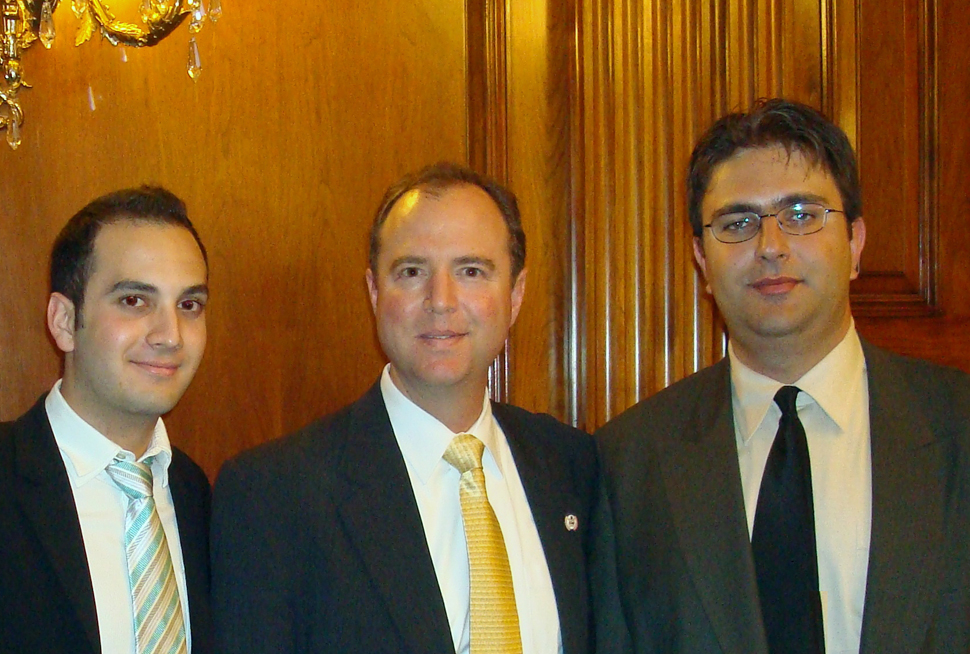
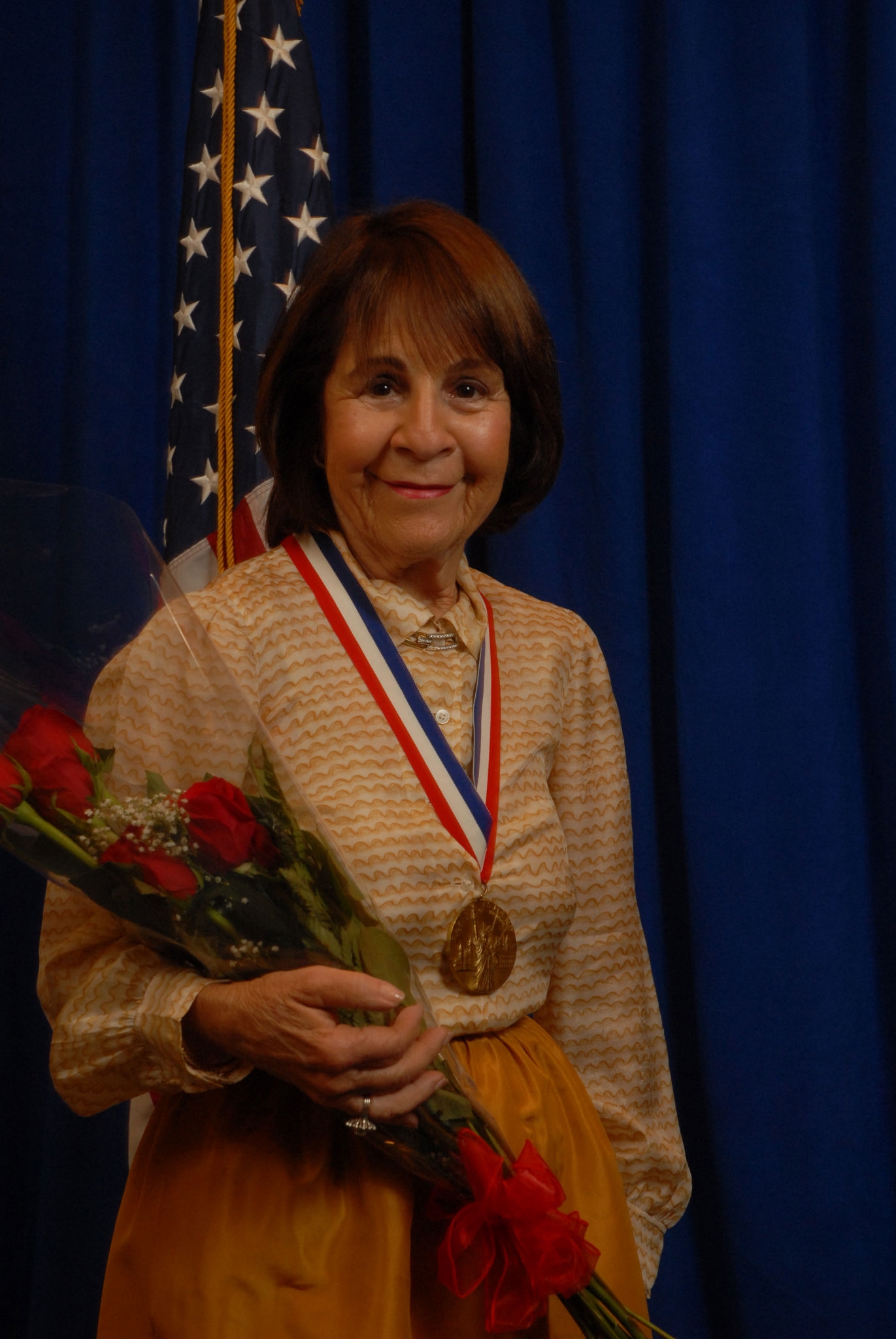
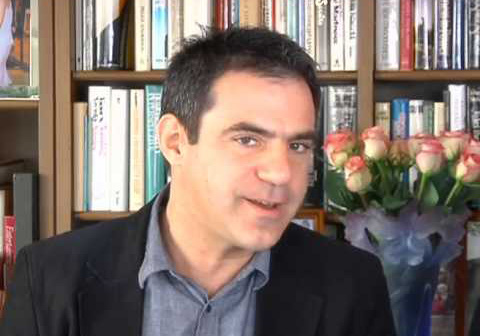
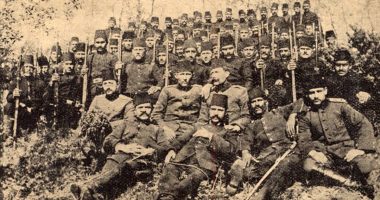

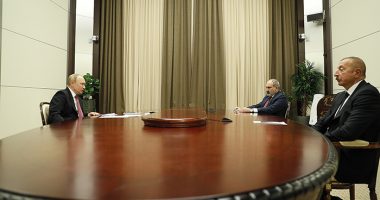




1 comment
Thank you for this article. Very informative. Keep up the good work !